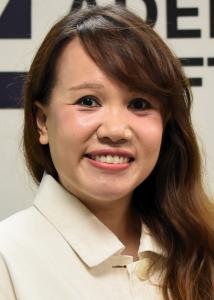Overview
ASEAN has faced a tremendous set of challenges, and indeed, the geopolitical and strategic factor had a crucial role to play in the continuous development of ASEAN itself. These range from the Russia-Ukraine conflict, food and energy insecurity, the political crisis in Myanmar, the downturn of the global economy, as well as the intensified major power rivalry between the US and China. ASEAN arrived at a crossroads where it must do more / step up to ensure resilience and relevance in shaping its own regional architecture. The policy and mechanisms for the full realization of the ASEAN Community must be properly drafted with careful strategic calculation, effective implementation, and meaningful evaluation.
Recognizing that there are loopholes and obstacles, as well and existing and potential threats that may hinder ASEAN from addressing the regional and global issues, a few questions must be raised: How can ASEAN revitalize itself? What are the practical reforms to foster regional integration? What efforts should be undertaken to realize a people-oriented and people-centered ASEAN Community?
This special publication aims to explore ASEAN’s weaknesses or loopholes in its existing working mechanisms, policies and initiatives by looking at its main three pillars, namely the ASEAN Political-Security Community (APSC), ASEAN Economic Community (AEC) and ASEAN Socio-Cultural Community (ASCC), and to offer recommendations for practical reforms. This will be an evidence-based study, co-led by the Konrad-Adenauer Foundation Offices in Cambodia and the Philippines, in close cooperation with the Asian Vision Institute (AVI); and it will gather eminent scholars with expertise on ASEAN across the region to provide critical assessment and formulate feasible recommendations based on each of ASEAN´s three pillars.
Therefore, KAS and AVI would like to invite distinguished scholars with a research interest in ASEAN to submit their abstract based on a selected pillar to partake in this study.
Objectives
-
Provide critical assessment on ASEAN based on each pillar through evidence-based studies, or any potential challenges that may hinder its future relevance
-
Identify the existing and potential issues facing ASEAN
-
Gather scholars and experts in ASEAN, along with outsider perspectives, to provide feasible policy inputs, recommendations, and in-depth revitalizations proposals to ASEAN
Preferrable Themes
This report shall contain the following structure:
- Critical Assessment on ASEAN Political-Security Community (APSC) and Practical Recommendations
- Critical Assessment on ASEAN Economic Community (AEC) and Practical Recommendations
- Critical Assessment on ASEAN Socio-Cultural Community (ASCC) and Practical Recommendations
- Any other necessary solutions to the potential challenges of ASEAN
Call for Authors
All distinguished scholars and experts with a research interest on ASEAN that meet the following eligibility criteria are welcome to submit their abstracts.
Eligibility
-
Academic Background: at least a master’s degree in the field of political science, international relations, social science, or any other relevant fields
-
Research Interests: Southeast Asian studies, ASEAN Community development (in all pillars), etc.
-
Has experience in producing research papers, journal articles, or any other type of academic publications
Incentive
Honorarium: 500 USD (withholding tax included)
Application procedure
Interested candidates shall submit their application attaching with the following:
- Abstract: 300 words max.
- Brief Personal Biography (academic, research, and professional background)
The application shall be submitted to the three people as follows:
- Mr. Lim Menghour, Director of Mekong Centre for Strategic Studies, Asian Vision Institute | Email: l.menghour168@gmail.com
- Mr. Soth Chhayheng, Program Manager for Foreign Affairs, KAS Cambodia | Email: chhayheng.soth@kas.de
- Ms. Tonette de Jesus, Senior Program Manager for Governance and Foreign Relations, KAS Philippines | Email: tonette.dejesus@kas.de
Click here for detailed guideline.





